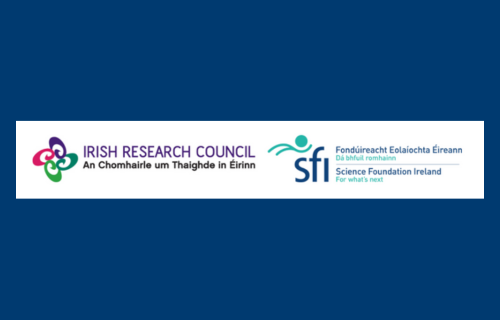UCD School of Medicine's Qian Xu awarded close to €600,000 in SFI-IRC Pathway programme
Thursday, 11 July, 2024
Share

On 11 July 2024 Minister for Further and Higher Education, Research, Innovation and Science, Patrick O’Donovan TD, announced a €14.6 million investment in 25 projects to support early career researchers under the SFI-IRC Pathway programme.
School of Medicine's Qian Xu was one of the successful recipients for her research titled A multi-therapeutic strategy for diabetic wound healing based on the injectable ECM-Mimetic hydrogel delivery of tailored ADSC-derived exosomes. The project has been awarded €593,186.70. Qian will be working with Prof Wenxin Wang in his lab at the UCD Charles Institute.
An explanation of the project is as follows:
Diabetic wound healing is a significant healthcare burden for patients, their families, healthcare providers, and society. The self-perpetuating inflammatory stage and impaired skin cell functions are the key dysregulated events in diabetic wound healing, leading to the failure of healing. Due to the complexity of the wound environment and the tissue repair response, no single treatment has been found to meet all the needs of diabetic wounds. A combination of different therapeutic approaches aimed at correcting multiple deficits simultaneously would help lead to a successful outcome for diabetic wound healing. This project aims to produce a bioactive hydrogel scaffold that can withstand the harsh wound environment, regulate the local wound environment, and act as a temporary matrix that allows normal cellular activities to occur. The tailored exosomes will be protected by the scaffold and released in a controlled manner, and synergistically participate in regulating abnormal cellular processes in diabetic wounds. This proposed project seeks to modulate the harsh wound environment to restore the healing potential of the major players involved in the healing process, ultimately promoting wound healing. It can be envisaged that this versatile platform technology can also be used for a broad range of other biomedical applications.
Regarding the €14.6 million investment, Minister O’Donovan said: “This Pathway funding will help facilitate a defined journey from post-doctoral research to independent researcher. Bridging this gap is a challenging but critical milestone, and the research selected for investment will address key challenges and opportunities, ranging from new therapies for Parkinsons to the development of sustainable supercapacitors.”
The SFI-IRC Pathway programme is a collaborative initiative between Science Foundation Ireland (SFI) and the Irish Research Council (IRC) to support early-career research across all disciplines and to encourage a cohesive research ecosystem in Ireland.
The awards will enable postdoctoral researchers to develop their career pathway and transition to become independent research leaders. The funding, covering a four-year period, will provide additional support for a postgraduate student who will be primarily supervised by the awardee.
The 25 research projects will be funded through 13 research bodies, as follows: Trinity College Dublin (2); Maynooth University (1); University College Cork (3); Tyndall National Institute (1); University College Dublin (8); Technological University Dublin (1); University of Limerick (2); Dublin Institute for Advanced Studies (1); RCSI University of Medicine and Health Sciences (2); The National Institute for Bioprocessing Research and Training (1); South East Technological University (1); University of Galway (1); Dundalk Institute of Technology (1).
Congratulations to Qian and to all the awardees.